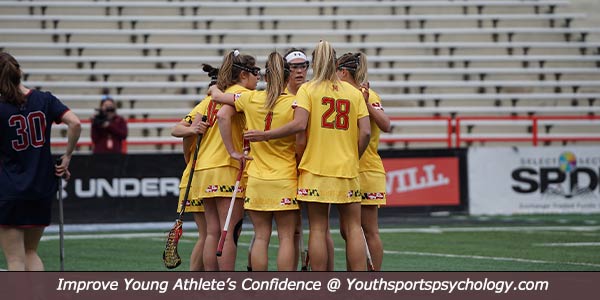Focus on Small Objectives
It’s important for young athletes to establish goals in order to improve their training for the new year. Many young athletes have goals about the successes they’re aiming for in competition, but don’t have well-defined goals for training and practice.
Training is critical to success in competition; the best athletes train smart. That means they have well-defined goals for each practice session.
One way for kids to set better goals and improve focus is to establish goals specific to what they will face in competition.
Kids shouldn’t train for parts of their game that aren’t relevant to their performance. For example, focusing on what the other competitors are doing in their training is not relevant to kids’ practice.
Instead, kids need to set goals that help them focus on the processes needed for success in their sport. These are called mini-goals or process goals.
Process goals help young athletes hone their focus on the relevant tasks needed for success in competition. In training, kids need to work on a mindset that focuses on process goals.
Young athletes can set different process goals for different aspects of their sport. For example, swimmers should establish process goals for the start, turns, beginning, middle and end of a race. One process goal could be to improve reaction time for kids’ starts.
Young athletes should establish process goals as a priority during training sessions. Setting process goals during practice also helps kids boost their focus during practice and ultimately in competition.
Establish Mental Game Goals
Sports kids should also establish goals to improve their mental game. We know that if athletes’ minds are getting in the way of their performance, it doesn’t matter how much they work on the physical aspects of their game.
Establishing specific goals is not the only thing sports kids should work on in the new year. They can also boost their confidence by creating a sports success resume.
On this success resume they should list all the personality traits, strengths and experiences that make them great players and team members.
They might list mental game skills, such as the ability to communicate with others, or physical skills such as the ability to run fast. They might also include moments that boosted their confidence. For example, they might include the day they scored four three-pointers.
Kids should keep these success resumes in an easily accessible place–perhaps the car. They can pull out their resumes and review them before an important practice or game.
They should keep their strengths and victories in mind as they enter the new season–not their weaknesses and losses.
With goal-setting and confidence-boosting efforts, sports kids can enter the new year well prepared to improve their focus, enjoyment and performance.
Related Articles on Kids’ Mental Game:
- Goals vs. Expectations for Kids
- Help Kids Focus on Goals While They’re Isolated
- Help Young Athletes Set Goals for the Season
*Subscribe to The Sports Psychology Podcast on iTunes
*Subscribe to The Sports Psychology Podcast on Spotify
Improve Your Mental Game From Anywhere In The World

We’re certain that, as a parent, you want to help your child develop confidence and discipline in sports and life. And as a sports parent, you’d love for your children to reach their potential in sports. But encouraging your child to strive for greatness without pressuring them can be a challenge.
You can get expert mental coaching with us from anywhere. Meet with us via Zoom, Skype, FaceTime or phone call. With today’s video technology, we are able to connect with athletes and coaches all over the globe.
Call Us Today to Schedule Your Free 15-Minute Session.
Find Out How Your Athlete Can Benefit From One-on-One Mental Coaching!

